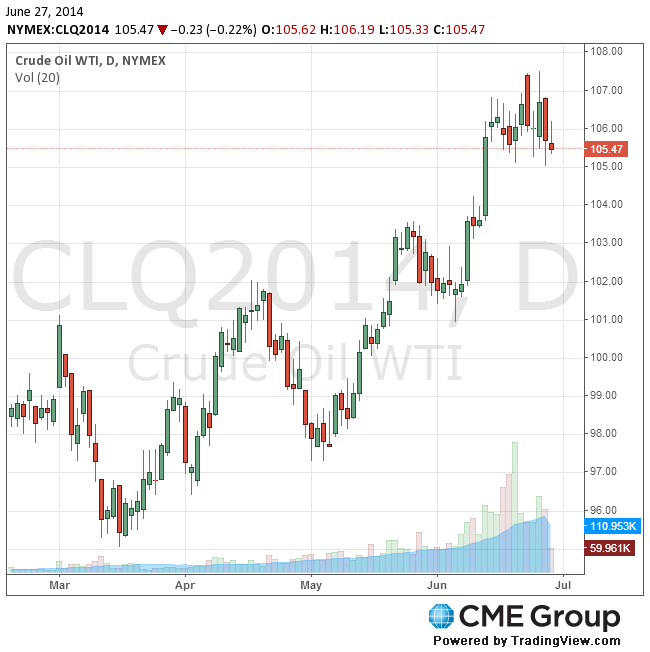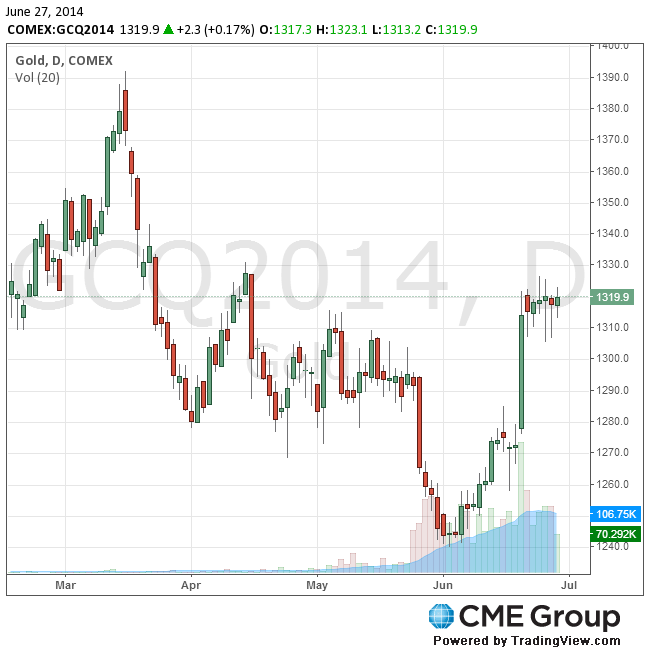Notícias do Mercado
-
16:40
Oil fell
Brent headed for the first weekly drop since violence erupted in Iraq amid speculation that oil output would remain safe in OPEC's second-biggest producer. West Texas Intermediate was steady in New York.
Futures were little changed in London and down 1.2 percent from June 20, the biggest weekly drop since April. Iraqi forces held the Baiji refinery in the north after repelling the latest attack by Islamist militants. Fighting hasn't spread to the south, home to more than three-quarters of the nation's oil production. U.S. crude stockpiles increased last week for the first time since May, according to the Energy Information Administration.
"Right now we are focusing hard on the situation in Iraq, although concern may have been a bit inflated," Jens Pedersen, an analyst at Danske Bank A/S in Copenhagen, said by e-mail. "The short-term risks to the oil market are limited."
Brent for August settlement was at $113.37 a barrel on the London-based ICE Futures Europe exchange, up 16 cents, at 1:12 p.m. London time. The volume of all futures traded was about 48 percent below the 100-day average for the time of day. Prices have climbed 2.3 percent this year.
WTI for August delivery was little changed after earlier sliding as much as 36 cents to $105.48 a barrel in electronic trading on the New York Mercantile Exchange. Prices are down 1.3 percent this week. The U.S. benchmark crude was at a discount of $7.48 to Brent on ICE, compared with $7.98 on June 20.

-
16:20
Gold moderate growth
Gold prices show a moderately positive trend after declining the previous day, as investors weighed news about illegal transactions with the metal to obtain loans in the PRC and signs that U.S. inflation is accelerating.
During the investigation conducted by the Chinese authorities became aware of the loans totaling 94.4 billion yuan (15.2 billion dollars), which are associated with the possible misuse of gold as collateral for loans since 2012. According to the report of the National Audit Office of China, check zolotoobrabatyvayuschih 25 companies revealed a large amount of illegally obtained loans secured by gold. Recipients of loans used the funds to profit from the spreads on interest rates and foreign exchange market. However, management did not specify what was the structure of these loans or making them illegal.
For some traders investigation in respect of loans with gold as collateral raises doubts about the future of such loans in China, said Edward Meir, a senior strategist at INTL FCStone.
Market participants fear that "the authorities are tightening the terms of this type of lending, which in turn could weaken import demand," - he added.
However, it is too early to assess the impact of the results of this investigation on the world gold market, as the details are still unclear, warned Jim Wyckoff, senior analyst at Kitco.
"We do not know much about this situation - he said. - The situation is evolving, but $ 15 billion - this is not a small amount, "- said Woolfolk.
However, gold prices have recovered somewhat from the sharp decline after data showed that the price index for personal consumption expenditures, a key indicator of inflation, rose by 1.8% compared with the same period last year. This is the strongest growth in 19 months.
Gold is considered by some investors, holds its value better rates or Treasury bonds, and they tend to buy the metal as a hedge against inflation.
The cost of the August gold futures on the COMEX today rose to $ 1323.1 per ounce.

-